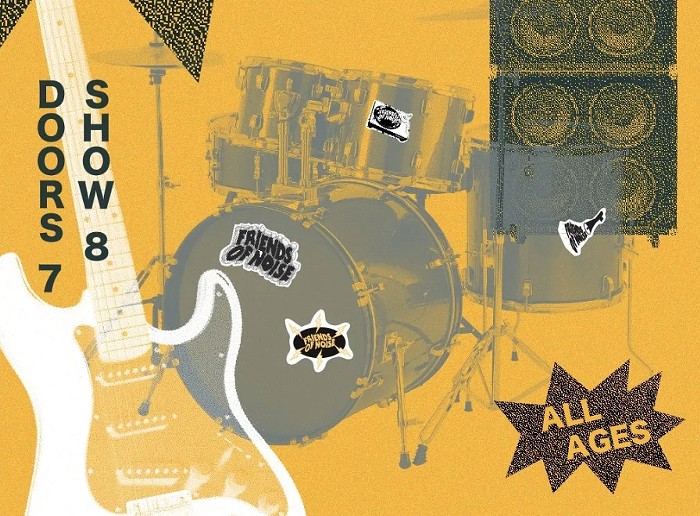HISTORIANS EXIST as living guides to that which is doomed to repeat itself; they sit upright in their wood-paneled studies amongst heavy gold-leafed land records and try to keep the past from gathering too much dust. Authors hole up in poorly lit rooms with typing machines in the wee hours; they hunt for that which is meant to be captured from their heads and relocated to the page. And meanwhile, Sean Flinn picks up a guitar and combines the two, reconstructing what's happened in the past, what he sees around him now, and what he envisions could or should or is happening, then invites his friends to sing and play along.
And thus, Write Me a Novel, Flinn's debut LP, officially enters the world at the end of the month on this premise. "There is so much history and there are so many stories, and I feel like these things keep us alive. The album title nods towards wanting to take the time and preserve all of the amazing things you see in a life," says Flinn.
But like any good story, fiction or nonfiction, it is the characters involved that provide the twists and turns. For the fleshing of this record, Flinn directed a cast pulled from his talented pool of friends and shuffled under the majestic plurality of the Royal We, including locals Laura Gibson, Nick Jaina, Rachel Blumberg, and more. Most are people to whom he lends his own musical capabilities, folks with whom he's spent an unnecessary amount of time in a van, breezing through cities on another tour odyssey, and all were part of an underlying discourse going on between a man and his work.
"It was a process of opening up... and bringing in the people that I envisioned recording these parts," explains Flinn. "And then it just worked; the first line [to the title track] is 'Write me a novel/Full of people I know.' It's about having all of these voices on the record that are important to me."
As for the songs themselves, there is much to be dealt with in the way of life's construction and its inevitable demise, the curious purgatory between adolescence and adulthood, as well as primal snapshots provided along the way; for instance, we find "an old man praying for a better yield," in the beautiful "Patient Heart." It's a vivid image, and a timeless one: a sturdy photograph with tattered edges.
Listeners can find these recurring themes spattered throughout the record, but also perfectly contained in the song "Salt That's in Our Blood," a semi-conscious rant set to a shuffle beat. The song begins with the line "Sometimes I wanna tear it down/Everything I ever built," and chocks all inner chaos up to the salinity of human blood—though I don't think Flinn is referring to high blood pressure as a result of sodium intake: "There is an inherent craving for destruction, and I think it's because we all live so separated from death."
The Royal We, however, live on in the divine right, and will work to extend the reach of these songs beyond Portland. While the record was a potlatch of sorts, the live performances are now offerings from fully invested band members. "I've got seven people nailed down now," says Flinn, "and touring will happen this fall."



















